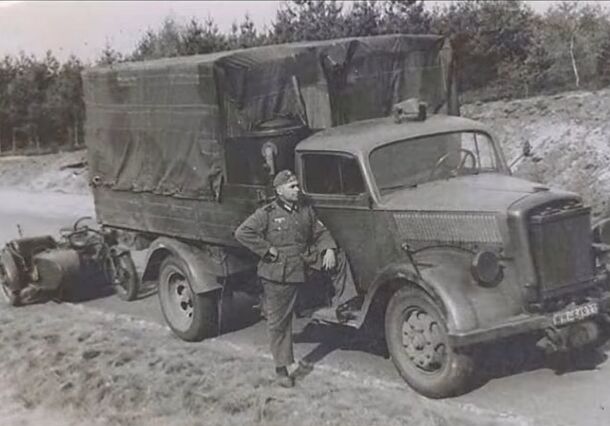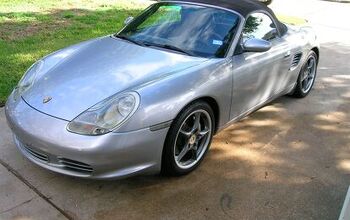Deutsche Bank Says Germans May Need to Switch from Gas-to-Wood for Heating this Winter, is Wood-to-Gas for Cars Next?

Germany’s Deutsche Bank has issued a note on the current energy supply situation that says that if Russia makes deeper cuts in the supply of natural gas to western Europe as a result of sanctions over the war in Ukraine, German households might have to turn to an alternative fuel to heat their homes, wood.
“There are lots of elements of uncertainty,” the note said. According to long-range weather forecasts, Europe is expecting a harder winter than it normally experiences. Russia has already cut shipments to countries like Bulgaria and Poland for their refusal to use rubles for payment. Also, Gazprom, Russia’s state-owned energy company has sent mixed messages over whether or not the Nord Stream 1 pipeline, which has been shut down for maintenance, will reopen.
Deutsche Bank via https://twitter.com/JavierBlas/status/1547180581141766144
The Deutsche Bank note said if natural gas supplies are not sufficient, coal and lignite could replace natural gas in the industrial and power generating sectors but that for domestic heating wood could substitute. The idea of using wood for domestic heating is about as old as mankind but modern concerns about energy supply have made it relevant again. When the state of Texas had blackouts due to severe winter weather and renewable backup energy sources failing, many homeowners used fireplaces and wood stoves to keep warm.
If that comes to pass in Europe, this would not be the first time Germans and other Europeans would switch to wood for energy. During World War II, as many as a half million passenger cars were run on what is called “wood gas”, also called syngas or producer gas. Germany did not have sufficient supplies of petroleum for its military uses, so it developed synthetic fuels. General Patton even had some of the 3rd Army’s vehicles run on synthetic fuel that they drained from captured or abandoned German tanks. If the Wehrmacht, the German army, didn’t have enough fuel, you can be sure that regular Germans had to find alternatives for their motor vehicles. As a strategic commodity, gasoline was severely rationed during the war, in the United States as well as Germany.
In the 1920s, French chemist Georges Imbert invented a coal gasifier, later licensing the process to German firms.
Imbert Gasifier
Wood gas, sometimes called producer gas, is the result of thermal gasification of carbon-containing materials such as coal or biomass. It’s produced by pyrolysis and two high temperature (~1,300°F) reactions that produce, among other gases, carbon monoxide, hydrogen, polycyclic aromatic hydrocarbons, and methane, which are combustible. Fortuitously, conventional carburetted gasoline-fired internal combustion engines will run on wood gas just fine without extensive modifications. The biggest problem, literally, is finding space for the gasifier, about the size of a 50-gallon hot water tank. Some gasifiers were mounted to the car or truck, while in some cases the wood gas generator was trailered.
There were even thousands of “wood gas stations” in Europe, where motorists could stock up on wood.
Now, do I really expect millions of BMWs, Mercedes-Benzes, and Volkswagens in Germany to start carrying around wood gasifiers? Probably not, petroleum supplies seem stable, but it’s hard to hear about Germans switching from “gas-to-wood” without thinking of the time when Germans used “wood-to-gas”.
[Image via YouTube]

Ronnie Schreiber edits Cars In Depth, the original 3D car site.
More by Ronnie Schreiber
Latest Car Reviews
Read moreLatest Product Reviews
Read moreRecent Comments
- Dartman EBFlex will soon be able to buy his preferred brand!
- Mebgardner I owned 4 different Z cars beginning with a 1970 model. I could already row'em before buying the first one. They were light, fast, well powered, RWD, good suspenders, and I loved working on them myself when needed. Affordable and great styling, too. On the flip side, parts were expensive and mostly only available in a dealers parts dept. I could live with those same attributes today, but those days are gone long gone. Safety Regulations and Import Regulations, while good things, will not allow for these car attributes at the price point I bought them at.I think I will go shop a GT-R.
- Lou_BC Honda plans on investing 15 billion CAD. It appears that the Ontario government and Federal government will provide tax breaks and infrastructure upgrades to the tune of 5 billion CAD. This will cover all manufacturing including a battery plant. Honda feels they'll save 20% on production costs having it all localized and in house.As @ Analoggrotto pointed out, another brilliant TTAC press release.
- 28-Cars-Later "Its cautious approach, which, along with Toyota’s, was criticized for being too slow, is now proving prescient"A little off topic, but where are these critics today and why aren't they being shamed? Why are their lunkheaded comments being memory holed? 'Who controls the past controls the future. Who controls the present controls the past.' -Orwell, 1984
- Tane94 A CVT is not the kiss of death but Nissan erred in putting CVTs in vehicles that should have had conventional automatics. Glad to see the Murano is FINALLY being redesigned. Nostalgia is great but please drop the Z car -- its ultra-low sales volume does not merit continued production. Redirect the $$$ into small and midsize CUVs/SUVs.




































Comments
Join the conversation
Love how Slavuta just rolls back in here like every assanine comparison he ever made between the US and Russia hasn't been proven to be a bunch of BS since he last showed his face around here 8 months or so ago. Enjoy your leave. It will be a long cold winter for you when you get back to the front. Unless of course you've deserted...I hear your countrymen are fond of that. LOL...exposed as the undisciplined paper tiger of a fighting force you are. You may yet win that war, but no first world nation is scared of you chumps.
I just want to express my sadness at how badly international relations between Russia and "western" nations have caved in. I don't know how it felt from within Russia, but from a USA perspective, it felt like the tensions of the cold war had largely eased by the early 2010s. There were still concerns about Russia's behavior in Chechnya and Georgia, saber-rattling, and sports cheating. But I think a sense of shared humanity and mutual cooperation was growing. Old stereotypes were starting to lift.
A lot changed in 2014, and even more has changed in 2022. I think many Westerners were shocked at the willingness of Putin and the Kremlin hardliners to kill to achieve their goals. I say goals, because while Putin frames the current conflict as a cornered Russia fighting for survival, anyone living in a NATO country knows that a war in Ukraine was totally optional. NATO has no aims of wiping out Russia, and if it did, Ukraine would not be essential to doing that. Some nations within NATO might imagine subjugating Russia, but there was never any chance of NATO uniting to fight an offensive war against Russia. At least, no chance in the absence of Russia invading a neighboring country ... which just happened. Putin must think that ruling Ukraine is really important, because his actions have made the world much more dangerous for Russians and everyone else as well.